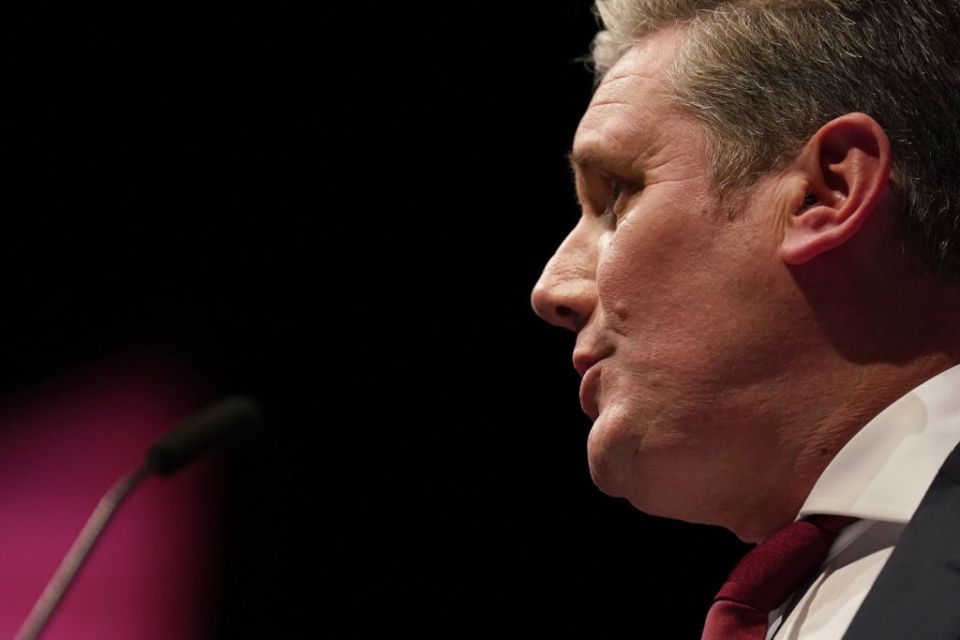As Starmer dreams of Downing Street, beware of sweeping electoral reform

After a confident speech from Sir Keir Starmer and with the polls showing the party’s leads stretching well into double-digits, Labour can finally start dreaming about being able to form a majority government at the next election. So it may seem odd timing for the party’s conference to endorse electoral reform for the first time in nearly a hundred years.
And indeed, many of the arguments that progressive advocates make for electoral reform are nonsensical. Electoral reform can’t be the way to get the Tories out of power because to implement it, the anti-Tory parties must first win power under the existing system. Likewise, as last weekend’s Italian elections demonstrated, extremely right-wing alliances can secure resounding victories under proportional representation.
It’s also not true that a new system would necessarily reduce the difficulties the non-Tory parties have in efficiently organising their support. Ideological tensions and personality quirks mean progressives struggle to coexist in one major party as easily as conservatives do. This would be exacerbated by the knowledge that minor parties would find it easier to secure representation in parliament. Not only would the Greens become a more prominent force in British politics – it’s highly likely that the far-left of the Labour Party and the libertarian-right of the Liberal Democrats would form their own parties.
But there is one thing that proportional representation would undoubtedly do – it would cut governments down to size. As we saw when David Cameron and Nick Clegg joined forces, coalitions require formal programmes that provide far more detail about forthcoming initiatives than election manifestos. And under proportional representation, it would be almost unthinkable that the prime minister’s party would command anything close to the 47 per cent of seats won by the Tories in 2010. By contrast, the leading parties in both Italy and Germany’s new coalition governments won less than 30 per cent.
This means that under proportional representation no prime minister could emulate Liz Truss’s behaviour since she and Kwasi Kwarteng moved into Downing Street four weeks ago. The promises that Boris Johnson made to secure power in 2019 were implausible, but they clearly signified that the Tories would at least try to balance a desire for lower taxes with delivering improved public services and reducing government borrowing. The Chancellor’s so-called “mini-budget” broke that commitment by prioritising tax cuts over everything else.
But he did more than that. He explicitly broke with not just the orthodoxy of this era of Conservative governance, but the party’s broader theory of economic management. Since Neville Chamberlain in the 1930s, the Tories have used fiscal discipline to maintain the space to keep interest rates as low as possible, believing this better protects homeowners and private investment. It has been the cornerstone of the party’s appeal to upwardly mobile voters for nearly a century – many of whom became homeowners due to policies designed to allow people to take on large mortgages. Without warning or cause, Kwarteng has taken a sledgehammer to the foundations of this pact with “middle Britain”. Not only did he reject his predecessors’ emphasis on fiscal discipline, but he welcomed tighter monetary policy as the proper way to handle the higher inflation that his policies will cause.
He can only get away with such a sudden betrayal because our current system allows powerful, centralised parties to win clear majorities of the seats in parliament. The glum faces and hostile questions that came from backbenchers underlines that today’s Tory Party is an uneasy coalition between different factions.
Yet such unease will not translate to rebellion due to the latent threat that voting with the opposition on such a key issue would lead to having the whip removed. Under proportional representation, the Tories’ coalition partners could not be so easily bullied, with them having the option to either form a new government with Labour or force an early election.
It was the former Tory Lord Chancellor Quintin Hogg who noted that in our system governments are like “elected dictatorships”, free to do what they want between elections. What has imperfectly limited their freedom of action is the understanding that they will try to govern in the spirit of their manifesto and respond to genuinely transformative crises on a cross-party basis. If the Tories now refuse to be bound by such conventions, then maybe it really is better that the rules be changed, so that they can never behave so wilfully again.
